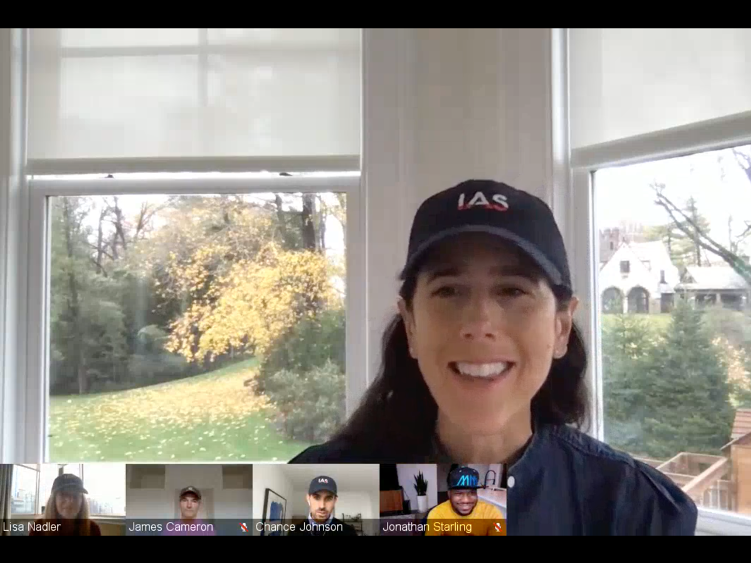
IAS
- A CEO said wearing caps during meetings helped her 700 staff stay connected while working from home.
- "Every single employee shows up" with a hat for meetings, Lisa Utzschneider, of Integral Ad Science, told the BBC.
- "We show up with our hats on for one another, we are one team," she said.
A CEO leading a company with 700 staff told the BBC that workers wear branded caps during video calls – and argues it's helped employees feel connected to one another while working from home.
Lisa Utzschneider, CEO of Integral Ad Science (IAS), an advertising tech firm, told the BBC that staff began wearing caps during video calls at the start of the COVID-19 pandemic. The company saw it as a "rally cry" that everyone was part of the same team, she said.
Utzschneider has worn a cap in town-hall meetings, while on-boarding new employees, and during investor calls. She wasn't wearing one during her interview, but says that "every single employee shows up" wearing a hat for meetings.
"It didn't matter which country you were dialing in, the time zone, the function, the title, the level," she said. "Wearing our hats together as a global organization unified our team."
Some workers have struggled to keep a barrier between work and home life during the pandemic, and Utzschneider said that wearing a hat has helped her with that. "When my two young girls see I have the hat on, they know mum's at work, and that means they can't really come in and visit me, but when I come downstairs for a meal, they'll tell me: 'Mom, it's time to take your hat off!'"
IAS, which works with companies including Disney and Sony to help them better target their advertising, went public in June.
Its New York and London offices are open, but most of the company's staff are on a hybrid work model, per the BBC.
Some high-profile CEOs have raised concerns about the impact of remote working on company culture, employee relationships, and the quality of ideas. Goldman Sachs CEO David Solomon, for example, has called training new staff virtually an "aberration" and urged bankers to return to their desks.
Surveys suggest most white-collar workers prefer hybrid working, but some fear that being out of the office could torpedo their career progression or cause them to be overlooked in meetings.
Employers have gone to dramatic lengths to preserve company culture and keep workers happy during the pandemic, organizing everything from virtual pet parties to customized cookies.
Management experts say that while it's important for employees to feel connected, the quality of managers, pay, and whether people actually feel listened to are much more likely to determine company culture.
